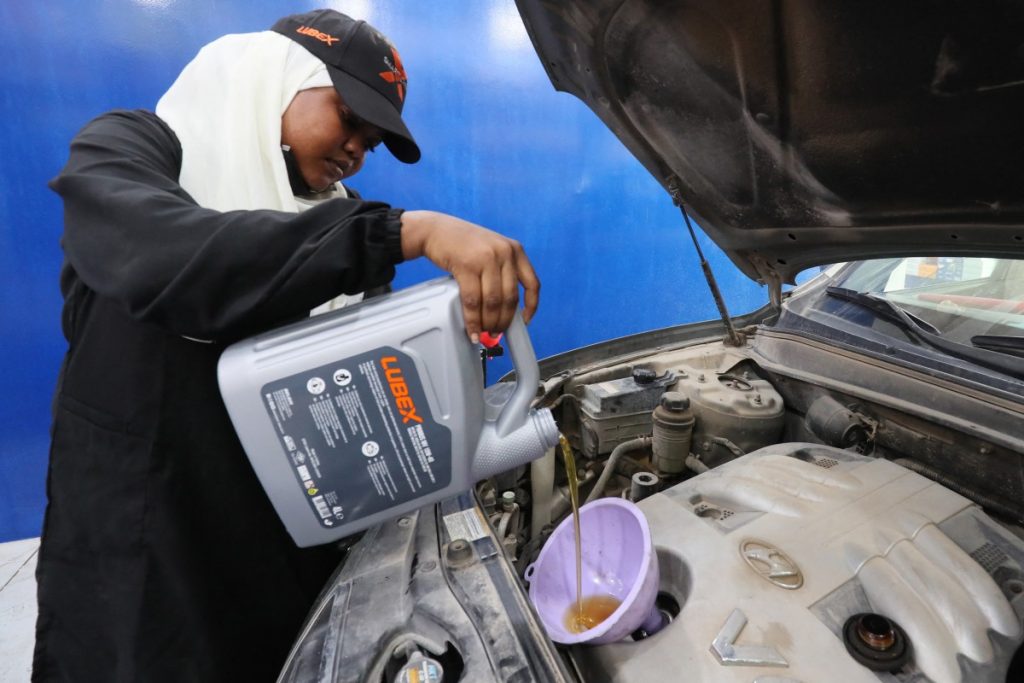Wrench in hand, Asawar Mustafa, a 22-year-old Sudanese refugee in Libya, inspects an oil filter in the women-only section of a garage in western Libya, where mechanics are traditionally seen as male roles.
Having fled war in Sudan and abandoned her pharmacy studies, Asawar’s primary focus was survival. Initially, she found the experience challenging and feared damaging customers’ cars. However, her skills improved, and she grew passionate about mechanics despite facing misogyny.
People have told her “your place is at home” and “this is not a job for you,” but Asawar refused to let these comments deter her. “It was funny to me that someone would say that without knowing my circumstances,” she shared. “I had one goal: I wanted the job.”
Each day, Asawar, wearing a white scarf and black blouse, serves female drivers from Misrata, a major port city 200 kilometers east of Tripoli. Customer Fawzia Manita noted, “It’s great to see women making inroads in all fields, including mechanics.” She added that as more women drive in Libya, they prefer dealing with female mechanics to feel more comfortable.

The Mustafas left Sudan in October during the war that erupted in April 2023 between the Sudanese army and the paramilitary Rapid Support Forces, leading to tens of thousands of deaths and over 2.3 million fleeing to neighbouring countries. After a 10-day journey across the desert, Asawar arrived in Kufra, where over 40,000 Sudanese refugees live with the local population.
Those were the worst days of her life, she said, without going into detail about her travels to Benghazi, Tripoli, and finally Misrata.
At the garage, her 19-year-old brother, Sahabi, provides essential support, stating, “I’m here for her if she needs help.” The shop owner, Abdelsalam Shagib, has also encouraged Asawar as his only female employee, arguing that the profession should not be exclusive to men and expressing the need for more female services in the field.
According to the World Bank, women made up 37 per cent of Libya’s labour force in 2022. Although there are other garages with sections for female drivers, Shagib claims his is the first to employ a woman for the job.
Asawar believes that as long as “a woman is determined,” no job should be considered a “man’s monopoly.” She encourages others not to hesitate if they have the desire to work in any field.


